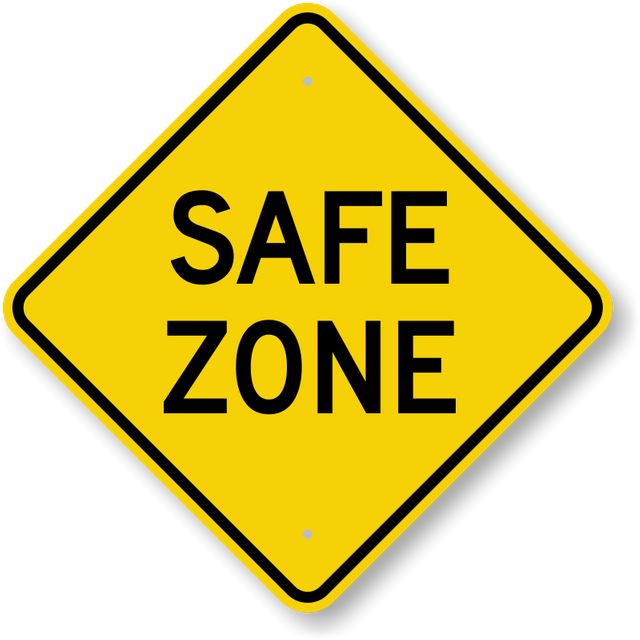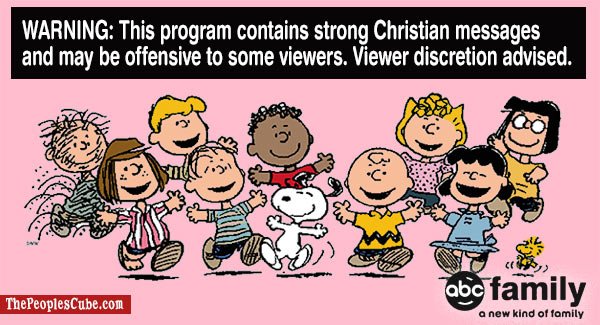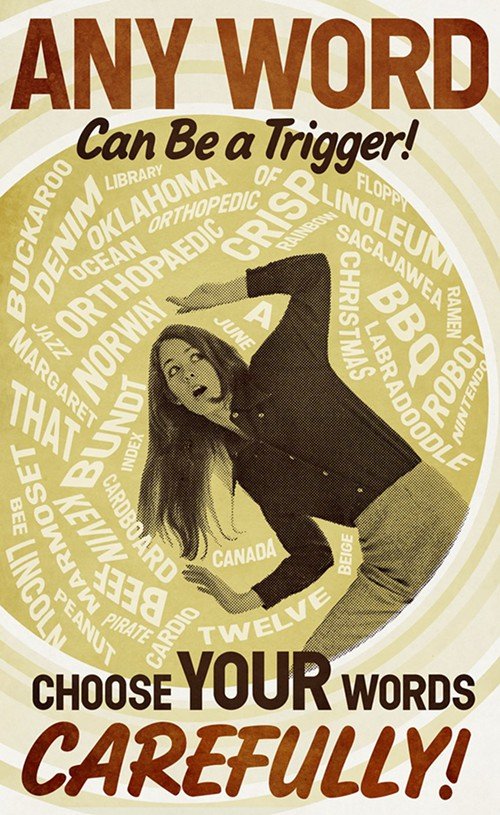What the Heck is a "Trigger Warning," and Why are College Students Demanding Them?

I'm not old at all, but it seems to me that the world gets more ridiculous every day. Today, I learned about "trigger warnings."
What in the World Are Trigger Warnings?
This is what I asked myself when I read the headline on a news article today. It said that students at American University in Washington, D.C. were demanding "trigger warnings" on all syllabi, despite a faculty resolution against them.
Say what?
I spent six years as a college student (four for the BA, two for the MA), and eight years as a college teacher, and NEVER heard this term mentioned on campus. And, I was involved in a lot of extracurricular clubs as a student, and faculty/student initiatives as a teacher.
I started teaching in 1998, immediately upon getting my MA, and quit teaching in 2006, after I got bored with it. Surely things hadn't changed that much in a decade?
Wrong!
So, it seems "trigger warnings" are announcements from the faculty to students that sensitive material of some kind may be talked about (or equally sensitive images shown) in a class. That way, students who may be upset by these things can leave, presumably without consequence to their grade.
The definition of "sensitive" seems pretty broad in the way American University students are using it. It can include culturally sensitive things, things that may be sensitive to people of a certain gender or sexual orientation, certain religions, and even unpredictable things that are sensitive for some reason to an individual student.
Students want them. Faculty don't.
And, both groups cite the same reason for their desire....academic freedom.
Trigger Warnings and the War for Academic Freedom

It's a real thing. Someone even wrote a book on it.
It seems American University isn't the first college where this issue has come up, but it is the latest, and the most vocal. Other universities have told students outright that there will be no trigger warnings on classes. The student government at American University is insisting this is not the right answer, and wants faculty to change their minds.
They claim the lack of trigger warnings creates an unsafe space, where not every student has access to learning. After all, how can someone learn if they are too traumatized by the material?
The faculty, on the other hand, says that college is a place for learning new things, exchanging new and unfamiliar ideas with each other, gaining tolerance for different viewpoints, learning respectful debate, and, basically, a place where censorship doesn't belong.
The "trigger warning" students are all about censorship, because they believe potentially upsetting material is an impediment to learning, and disrespectful of their individual feelings.
This all fits in with the "safe spaces" trend of the past few years on college campuses. Students want to feel safe and protected in every aspect of their lives at school, even going so far as to have their personal world views and beliefs protected and not challenged by the learning material.

They believe if the class material challenges their preconceived notions about anything, they are being discriminated against by having their access to academic freedom impinged in some way.
This seems to be a new thing, as I had relatives in college until only a year ago, and I never heard anything about "safe spaces" until this year. It's now a big deal on campuses around the country, and the debate with professors and administration over it is raging on.
Having been both a student and a faculty member, and with incredibly fond memories of being a student (one of the happiest times of my life), I've got to say, I side with the faculty.
Was I Ever Upset by Something I Saw or Heard in Class as a Student? Heck Yeah

I think most of us were. And, it's not just college. I remember my seventh grade Social Studies class doing a unit on the Holocaust, and we were shown some graphic films of concentration camp victims during the camp liberations. We saw images of dead people, and severely emaciated ones.
We had a lady who was a concentration camp survivor, complete with prisoner tattoo on her arm, come talk to our class, and she told some gruesome stories of what went on there.
Was that upsetting for me? Absolutely. Some of those images still haunt me today. I was only 12 years old when we were shown these things, after all. But, they were important things for me to learn, and not everything about history is pleasant. I don't feel like I was discriminated against, just because I was shown and told things at school that upset me.
I could list a lot of things like this, things that today's students would insist were creating "unsafe learning spaces" for them. For example:
- Being forced in 5th, 7th, and 10th grade to dissect animals. Worms, crayfish, grasshoppers, and frogs, in fact. I was not only disgusted by it, I was saddened and upset by it, because I am an animal lover and saw no need for those animals to suffer such a fate so we could cut them open. I still don't see the purpose of dissection for anyone who isn't becoming a doctor or biologist.
- My 11th grade psychology teacher brought in the cremated remains of an actual human, because he wanted us to see what they looked like (apparently lumpy and with bits of bone and teeth in them). I absolutely refused to look, and he didn't make me. Most of the class did look (thank God they went up to his desk, instead of passing the urn around the class), and if I'd been made to, I would probably have cried, thrown up, or both. But, I wouldn't have felt discriminated against.
- Stacks of fetal pigs waiting for dissection in a science classroom one of my classes was held in when I was taking Earth Science during my sophomore year of college. I really didn't need to see that.
- The existential crisis I suffered after taking Psychology 101 as a freshman in college, because so much of what goes on at a biological level in this field actually challenged by spiritual beliefs. Today's students wouldn't put up with such a challenge. While I certainly didn't like it, I DID think deeply about all I was learning, and how it applied to my worldview and religious beliefs. Guess what? I was able to reconcile the science and my beliefs in a way that made sense to me. My beliefs changed a little, but I still believe in God. And, I know more about human psychology as a result.
- The countless literature books in both high school and college (and even junior high) I had to read that had challenging, politically incorrect, and/or upsetting themes. Some books, I still regret having to read for a class to this day, as they were deeply disturbing. The same is true of some non-fiction, like The Narrative of the Life of Frederick Douglass. That's a first-hand account of slavery from a man who used to be one, and there is some really emotionally challenging stuff in it. But, it's important to read it, because we mustn't forget this happened, and we honor those it happened to by learning about it. As for literature, there are too many examples to list, but I can say I was not mature enough to read Dracula or Lord of the Flies when we had to read them in 8th grade. As an adult, I still don't like Lord of the Flies, but I actually enjoyed Dracula on a second, more mature reading.
These are just a few examples. I could name more. But, the point is that I never felt "not safe" by being presented with these materials. I did the work, and dealt with the emotions as they came, if anything elicited something in me.
I didn't feel discriminated against because I was being made to learn things I found upsetting. Everyone got upset by something learned in school. We dealt with it and moved on.
Why are today's students not able to do that? Why must they be coddled individually to feel like they can learn?
Why Are Students Insisting on Safe Spaces and Trigger Warnings?

This one is a mystery to me. Of course, I see people in the comments sections on articles like the one I read today blaming it on liberal parents raising ultra-sensitive liberal kids who can't handle their education, much less the real world beyond it.
But, I'm a liberal. I'm about as liberal as they come.
- I'm a fan of the Clintons.
- I've volunteered on tons of liberal Democratic political campaigns (I even got to meet Stephen Stills at a victory party).
- I've been an officer in various local Young Democrat clubs.
- I got excited about how happy a true communist society seemed when I took a class on Marxism in college (real communism, not the failed experiments in it that were done after WWII).
- I once dated a guy with his own liberal radio call-in show that he labeled the "anti-Rush Limbaugh" program, and who wrote a book called "It's Great to Be a Liberal."
Believe me, this is NOT a liberal issue.
I'm just as perplexed by this behavior and these attitudes as the apparent conservatives commenting on news articles about this phenomenon and blaming us liberals.
I hate to say the generation of kids who are in college now were too coddled by their parents and society in general when they were little, as every generation seems to say that about the one just behind it. But maybe that's really the reason this time. This is the generation of kids who grew up with everyone getting a participation trophy, and with "helicopter parents," after all.
It's so different from just a generation ago.
The difference in the way my generation was raised (Generation X, yo!) and the way the Millennials were raised is profound. It's like night and day. We had free-range childhoods; they didn't. We grew up and moved out of our parents' houses, for the most part. They are largely staying home or moving back there.
Does being coddled as a child make someone grow up expecting it from the world? If they want "safe spaces" and "trigger warnings" in college, what will they demand when they go into the real world to get jobs?
What will they do when they discover the real world has no safe spaces or trigger warnings?

ABC Family put this warning on a showing of A Charlie Brown Christmas. Does anyone actually think this was necessary?
Do Trigger Warnings Interfere with Academic Freedom?

Yes. At least, I personally believe they do.
When you put a trigger warning on a class, and allow a student to avoid doing work that may upset them and not have it affect their grade, you're being unfair to the other students in the class.
When you censor what you teach and how you teach it, when you stick a smiley face sticker on the more unsavory parts of history, when you don't assign certain reading materials that are really pertinent to the subject, all because some students might be upset or emotionally challenged by it, you're missing the whole point of college.
The reason for being in college is to learn new things, including new worldviews, new beliefs, new ways of looking at things, and more. You have to be challenged on some level to get the benefit of the education you (or your parents) are paying big bucks for you to receive.
Without challenge on both intellectual and emotional levels, there's no point in being in college at all.
If you stop challenging students, those who want that kind of stimulation and learning aren't getting it. It's not fair to them.
College is a place for the free exchange of ideas. There is no place for censorship there. These students are legally adults, though, emotionally, it seems like they have a long way to go.
Conclusion--Know What You're Signing Up for Before You Take That Class, Kids
It doesn't take too much intelligence to figure out what might be presented in a class.
When I took an elective called Sexual Behavior, I expected to see some naked lady and guy parts, and sure enough, that's what was shown (even photos of post-op sex change genitalia....I brought the textbook home, because my mom waned to see what that kind of thing looked like).
When I signed up for a class called Civil Rights, I expected to hear about the civil rights movement of the 1960's, including some potentially rage-inducing photos and film of clashes of civil rights protestors with the police. And, yes, I saw plenty of it in that class.
When my husband and I took a class on adopting kids from foster care, we expected to hear about physical and sexual abuse, which are emotional triggers for my husband, because he suffered those things as a kid. But, he soldiered through that class like a trooper, even though he was getting triggered all over the place. He kept it to himself and went on with the class. He knew what he was getting into from the beginning, and he dealt with it.
If you don't like the sound of a class, don't sign up for it.
And, if you are presented with something in class that you truly can't deal with for some reason, let the professor know, including WHY you must avoid it. Trust me, as a former college professor, most will be more than happy to work with you if you have a legit reason.
If, for some reason, a professor won't work with you, as is their prerogative, ask for a transfer, try to get the dean on your side, or just take the lower grade.
Whatever you do, though, don't deny other students their right to a real college education just because you need your "safe space" and "trigger warnings."
Centuries of college students have done just fine without them. They're not needed now.
The only way to have true academic freedom for all students is to forego "trigger warnings" altogether.
What do you think?

Remember this? It's in the Constitution.
If you enjoyed this post (and I hope you did), follow me at @stephmckenzie for more intriguing articles on life, the universe, and everything.
Photo credit:
@stephmckenzie I must be emotionally dead or have skin so thick nothing gets through. I too just recently learned about all this "trigger warning" stuff and actually had to ask another forum member what it was because it was a new phrase for me.
I don't understand it but if I have to try, perhaps it is my understanding that society is getting softer. I can sort of compare it to the early explorers, especially the Antarctic ones. Those guys, to me, seemed to be made of steel. The conditions and scenarios they endured blow my mind and I consider myself to be made of the tough stuff.
Perhaps it is just some sort of evolutionary thing that happens with the passing of time and we are just noticing it as it floats past us on the river of life. I dunno. All I do know is it is something that hasn't ever and doesn't apply to me so I'm going to move along and leave this curious comment here for others to ponder.
I was stunned when I first heard of this thing, and now I'm seeing people preface posts here and elsewhere on the internet with "Attention: Possible Trigger Warning for the Following Issues," and then list them. This wasn't a thing when I was in college, and it wasn't THAT long ago. I don't know what changed.
Weird. I don't think I'll be playing that game. But then again, I don't think I'm the kind of person who'll be generating any kind of triggering content...that is, unless you are triggered by interesting life stories and experiences. Perhaps I'll write about Trigger fish...what happens then?
Haha! That's a good one. You SHOULD write about them. :)
So do Americans have trigger warnings on guns? America is hilarious :)
Lol! We SHOULD. Everything else has ridiculously obvious warning labels. :)
Kids are so sensitive these days that many comedians including Chris Rock and Larry The Cable Guy won't perform at colleges anymore because students get upset at their jokes. I was definitely a free range kid. My parents had to drag me home before dark. There are no "trigger warnings" in real life. I feel sorry for these kids. How are they going to cope with situations in life that are uncomfortable and challenging to their personal, world view? Things don't always rub you the right way, but like my mom used to say when I felt that way, "Tough shit".
It's pretty sad when comedians won't go to colleges because they're concerned their jokes will offend the kids. That's way too sensitive. They are in for a rude awakening once they're out in the real world, because, as you say, life outside of school does not have trigger warnings, nor should it.
Man, kids today would have a fit if a group like The Village People came to play at their school, like they did at mine back in 1993. Was I offended by the stereotypes in the group? No. I was standing on a chair dancing, and moving my arms in letter formation to "YMCA." THAT is how you have fun while avoiding being offended.
(Trigger Warning!!!) Opinion herein :(
Do more and more people seems to enjoy victimization or do I imagine that?. What happened to forgive and forget? Or just moving on?
Oh, thank God you put the trigger warning that there would be an opinion in your comment. I wouldn't have been able to read it otherwise. ;)
You're right about people playing the victim card more often these days. I don't know why it's becoming such a common thing.
I don't know how it changed so quickly, but it sure did. We are teaching a entire generation they do not have control over their own thoughts and feelings, and that other people are responsible for you feelings. Not good. IMO.
You're right. It's important to teach our kids that they have control over their emotions. They don't need their peer group, society, their parents, or anyone else to tell them what to feel. We all control ourselves, but I don't think the current generation is "getting it."
Brilliant, thank you for this post.
Thanks. I'm glad you like it. It's one of those things that made me ponder when I read the article on the student government at American University.
None of this would even matter if the syllabus was determined by the student anyway. Why should people be forced to sit through the covering of a topic that has zero relevance to what they want to be doing as a job after they graduate? There are education systems that work this way, but they are uncommon, Steiner schools being an example. You would not need such a thing as trigger warnings, because students would study material they already declared they wanted to, and that would indemnify the teacher naturally since consent was given.
Maybe that's really the root of this. Education should not be torture. Teachers also don't really want to be trying to force students to learn things they aren't interested in and aren't relevant to them. At least, not teachers who actually want their students to pay attention, and who have enough sense to realise that if the kid isn't listening it's probably because to the student the material is irrelevant or uninteresting.
That is particularly true in public school, before college, when we have to learn some little bit of everything. But, not everyone has an aptitude or interest in everything. I was forced to take Algebra in public school, for example. I'm terrible with mathematics and have no interest in it, either. I couldn't see where I would ever have to use it, so I resented and dreaded having to go to that class. And, I've never used Algebra in the Real World. The class was stressful for me, and a big waste of my time.
Other nations do public school a bit differently, with students being guided into certain study areas where they have aptitude and interest.
At the university level here, you can choose your major, and choose your classes within that major, so there really shouldn't be any surprises in the material you're given. But, the first two years of college are basically an extension of high school. You don't get into the classes for your major until your second two years of college.
Even with the basic education of the first two years of college, you have some control over the classes you take. For example, we had to take two science classes. I avoided things I disliked, such as biology and chemistry, and went with easier, more enjoyable things, like Earth science and environmental science.
So, today's USA college kids really have no excuse for saying they didn't know what would be in a college class. They have a lot of choice over what they take. If they think something will upset them, they shouldn't sign up for it. They definitely shouldn't expect the professor to change the class just for them.
It is my view there is people handing out money to mercenary agitators promoting this demand from the student body... They are trying to complete the process of inculcating everyone in Newspeak.
I would actually not be surprised if this was true.
I agree with your post, and think the request for trigger warnings are ridiculous. I want to respond to a tiny not very relevant point you make in this above response....that algebra was a waste of time and that somehow we should only study what is "relevant". I want to point out that school isn't about memorizing material or even learning equations, it is about learning to use our brains, it's about developing critical thinking, it's about opening our minds, it's about self-development and learning the skills that we'll use all the time, it's about learning HOW to approach a math problem regardless of whether you remember the theorum because some part of your brain understands how math works . Vocational school and/or Graduate school is about learning something very specific that leads you to a job, (except if you're an artist like me!). I know this is besides the point but I just couldn't help having my say about the importance of learning and of skills.
Oh, I agree. I was a teacher for years. I even taught high school for a year and elementary school for a year, in addition to teaching college. I just happen to be a big believer in student-centered learning, which is the theory that, rather than force students to study something they have no interest in and no aptitude for (which has always been me with any kind of mathematics, even today, I still have trouble with it), the curriculum should be designed according to each individual student's strengths and interests. That way, students enjoy school more, are more prepared for what they want to do in the real world, and more actual learning takes place. Some smaller lessons in other things they may not be as interested in can be thrown into lessons in a way that makes sense, and they may discover something new they like and/or are good at. But forcing students into subjects they hate and/or just can't do no matter how hard they try (again, me with math) actually reduces learning, results in poorer grades, and less engagement from the student with their education.
But, I digress. :)
thanks for your reply and I agree with you 99%. I was lucky to spend several years of early schooling and graduate schooling in programs based around self-directed learning. I needed this desperately and value is greatly but am also very very grateful that I was forced to make it through some subjects I hated and failed at miserably - I too hated and was terrible with math. But use math all the time now as an artist, I have to and am grateful that I couldn't opt out of math, also grateful for chemistry which I hated just as much. Anyway, I think we're on the same page and I appreciate the exchange! BTW, I love your posts.
Thanks for the commentary. I'm always glad to discuss things. And, I'm glad you like my posts. Thanks for reading.
They want us to be stupid.
To be a slug mentally is part of it !
By the way, do not watch TV, and do not let your children watch it.
It certainly seems like there is a general "dumbing down" in America.
Or conspirators just want to cut some studying materials, and costs.
Lay off some stuff.
Looks like false flag =]
I don't thing students so stupid this days.
Interesting perspective. Thanks for sharing. I wouldn't put anything past the government these days.
Trying to be positive about it, and because of my free range education, accepting this new feature of university education that I do not like, in a few years maybe we could demand "trigger warnings" on the diploma of these professional...
I LOVE that idea. We should SO demand that when these kids graduate.